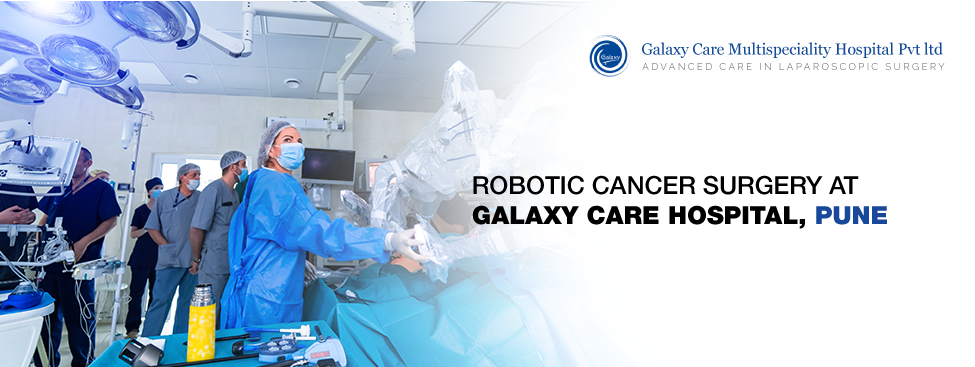
TYPES OF BREAST CANCERS: A COMPREHENSIVE GUIDE
Breast cancer is a complicated illness. Understanding it is crucial for receiving appropriate treatment and care. For the unversed, Breast cancer affects the breast tissue. It occurs when abnormal cells in the breast grow uncontrollably, forming a tumor or mass. These abnormal cells can then spread to other parts of the body, a process known as metastasis.
Not all breast cancers are the same. They can differ in their origin, behaviour, and response to treatment. This diversity underscores the importance of accurate diagnosis and personalised treatment approaches. By understanding the types of breast cancers, patients can make informed decisions about their care and consult the healthcare team to explore the most appropriate treatment options.
At Galaxy Care Hospital, we have the Best Breast Cancer Specialists in Pune. We understand the myriad of questions breast cancer can bring to mind. We are here to provide a comprehensive overview of the various types of breast cancers, their characteristics, and what they mean for individuals diagnosed with this condition. Let’s begin.
Non-Invasive Breast Cancers
Non-invasive breast cancers, also known as carcinoma in situ, refer to abnormal cell growth that is confined within the milk ducts or lobules of the breast. These cells have not yet spread into the surrounding breast tissue.
- Ductal Carcinoma in Situ (DCIS): DCIS is the most common type of non-invasive breast cancer. It occurs when abnormal cells develop within the milk ducts but have not yet spread beyond the duct walls. DCIS is considered a pre-cancerous condition, and while not life-threatening, it increases the risk of developing invasive breast cancer later in life.
- Lobular Carcinoma in Situ (LCIS): LCIS involves the growth of abnormal cells within the lobules, which are the milk-producing glands at the end of the breast ducts. While LCIS is not considered a true breast cancer, it can increase the risk of developing invasive breast cancer in the future.
Invasive Breast Cancers
Invasive breast cancers occur when abnormal cells break through the walls of the milk ducts or lobules and invade the surrounding breast tissue. These cancers have the potential to spread to nearby lymph nodes and other parts of the body.
- Invasive Ductal Carcinoma (IDC): IDC is the most common type of invasive breast cancer, accounting for approximately 80% of all breast cancer cases. It begins in the milk ducts and then spreads into the surrounding breast tissue.
- Invasive Lobular Carcinoma (ILC): ILC is the second most common type of invasive breast cancer. It originates in the lobules and spreads to the surrounding breast tissue.
Less Common Types of Breast Cancer
While IDC and ILC are the most prevalent types of breast cancer, several less common types deserve attention:
- Paget’s Disease of the Nipple: This rare form of breast cancer affects the nipple and areola (the area surrounding the nipple). It often presents as scaly, red, and irritated skin changes.
- Phyllodes Tumors: These rare tumors develop in the breast’s connective tissue, rather than the ducts or lobules. While most phyllodes tumors are benign, some can be malignant.
- Inflammatory Breast Cancer: This aggressive form of breast cancer is characterized by redness, swelling, and warmth in the affected breast, often resembling an infection. It is caused by cancer cells blocking the lymph vessels in the skin of the breast.
- Other Rare Breast Cancers: There are other rare types of breast cancer, such as metaplastic, medullary, and mucinous breast cancers, which are named based on the unique characteristics of the cancer cells under the microscope.
Subtypes of Breast Cancer
In addition to the different types of breast cancer, there are also subtypes classified based on the presence or absence of certain receptors on the cancer cells. These subtypes play a crucial role in determining the most appropriate treatment approach.
- Hormone Receptor-Positive Breast Cancer: About two-thirds of breast cancers are hormone receptor-positive, meaning they have receptors for the hormones estrogen and/or progesterone. These cancers are typically treated with hormone therapy, such as tamoxifen or aromatase inhibitors, in addition to other treatments.
- HER2-Positive Breast Cancer: This subtype occurs when the cancer cells have an excess of the HER2 protein, which promotes cancer cell growth. Targeted therapies, such as trastuzumab, are often used in combination with other treatments for HER2-positive breast cancers.
- Triple-Negative Breast Cancer: Triple-negative breast cancer lacks receptors for estrogen, progesterone, and HER2. This subtype is more aggressive and typically treated with a combination of chemotherapy, surgery, and radiation therapy.
Breast Cancer Stages
In addition to the types and subtypes, breast cancer is also classified into stages based on the size of the tumor, the extent of its spread, and other factors. The staging system helps guide treatment decisions and provides information about prognosis.
- Early Breast Cancer (Stages 1 and 2): Early breast cancer is confined to the breast and may or may not have spread to nearby lymph nodes.
- Locally Advanced Breast Cancer (Stage 3): This stage refers to larger tumors or cancers that have spread to nearby areas, such as the skin or chest wall.
- Metastatic Breast Cancer (Stage 4): Metastatic breast cancer, also known as advanced or secondary breast cancer, has spread to distant parts of the body, such as the bones, liver, lungs, or brain.
Get Timely Breast Cancer Diagnosis and Treatment
Breast cancer is a complex disease with various types, subtypes, and stages. If you or a loved one have been diagnosed with breast cancer, it’s essential to consult with the Best Breast Cancer Specialist in Pune at Galaxy Care Hospital. We can guide you through the process, explaining the different types, and treatment options, and ensuring you receive the highest quality care.
Our team of experienced oncologists, surgeons, and healthcare professionals work together to provide personalized treatment plans tailored to each patient’s specific type and stage of breast cancer. We are committed to delivering the best possible care and support throughout every step of the journey.
Remember, early detection and understanding of the types of breast cancer you’re dealing with can significantly improve treatment outcomes. Don’t hesitate to seek medical advice and support from the trusted Galaxy Care Hospital. Feel free to get in touch today!


